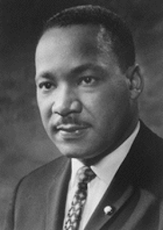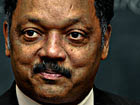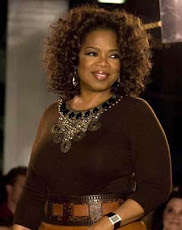By Ise-Oluwa Ige
ABUJA—IN SPITE of the controversy over his legal powers, the out-going Chief Justice of Nigeria, Justice Idris Legbo Kutigi, yesterday, in Abuja, swore in Justice Aloysius Iyorgyer Katsina-Alu as the 11th Chief Justice of Nigeria. Not a few senior lawyers, especially members of the Inner Bar, had strongly argued that the laws of the nation neither allowed, recognised nor envisaged an incumbent Chief Justice of Nigeria, CJN, swearing-in his successor because, by doing that, it would mean that the nation would have two substantive Chief Justices at the same time. They had argued that such situation would be absurd and should be avoided. It was also their contention that since 1958 when the first indigenous Chief Justice of Nigeria, Justice (Sir) Adetokunbo Ademola, was sworn into office till the time of Justice Kutigi, who is the 10th Chief Justice, the Oath of Office was administered on each one of them by the Head of the Federal Government, the appointment being a political one. They had also argued that even if there was no clear-cut constitutional provision stopping an incumbent CJN from swearing in his successor, the practice since 1958 was already a norm which ought not be disturbed. But, the out-going CJN, Justice Kutigi who sworn-in his successor yesterday faulted the arguments of the senior lawyers, saying they lacked merit. Kutigi, who administered the Oath of Office on Justice Katsina-Alu, yesterday, however, said he was still the number one judicial officer in the country and would be in charge of the third arm of government until he formally bowed out of the Bench. 
The Kutigi-born jurist, few hours after the swearing-in of Justice Katsina-Alu, hit the mandatory retirement age of 70, and is due to formally bow out of the Supreme Court Bench today. Only six serving justices of the Supreme Court graced the event yesterday. They are Kutigi, who administered the oath; Justice John Fabiyi, who was recently elevated to the apex court Bench; Justice Tanko Mohammed; Justice James Ogebe; Justice Coomasie and Justice Mahmoud Mohammed. Nevertheless, politicians, judicial officers, serving and retired from various courts graced the occasion. Also present were the governors of Benue, Rivers, Kwara, Enugu and Bayelsa states. Kutigi blasts critics In a nine-minute remark by Justice Kutigi on the occasion which had all the trappings of a court ruling, he said: “I thank the Almighty God Allah who brings us together today to witness this epoch-making event. For the first time in the history of this country, the Chief Justice of Nigeria has sworn-in the in-coming. “It is the first time (clapping). That it is the first time is not the fault of anybody. This is because the law has always been there. The swearing-in of the CJN is either done by Mr President or the outgoing or retiring Chief Justice. Now the occasion arises to perform the function which I have just done. ‘I am aware that this has generated a lot of commentaries and controversies from people who were supposed to know. The law is there. There is nothing new. “If you look at the Oath Act 2004, you will see the provision there where the CJN, justices of the Supreme Court, President of the Court of Appeal and the justices of the Court of Appeal, among others, are all listed in a column, all of them, according to the Act are to be sworn in by the President or the Chief Justice of Nigeria. Kutigi justifies action ‘The provision is there and it has always been there. “That the outgoing CJN has never done it does not make it wrong. The law is clear. “If you also look at the 1999 Constitution, it also makes it clear: that the person who has the responsibility of swearing-in the new CJN is the Chief Justice of Nigeria. ‘What I am saying is that there is nothing new about it. The law is there but for the first time we are just using it today. ‘And, let me say that I will be attaining the age of 70, Insa Allahu, by midnight today (clapping) “The law requires me to bow out at the age of 70 and so I should bow out tomorrow (today). “So, make no mistake about it, I am still in charge. (clapping again and laughing) “I said this because I don’t want mischief-makers to go and write in the papers that there are two CJNs in Nigeria .
“Until I retire tomorrow, I am still in charge. “Ladies and gentlemen, being a member of the judiciary myself, a member of this court, I can say that the new CJN who has just been sworn-in is the 11th indigenous Chief Justice of Nigeria (clapping).
“The President of the Court of Appeal who has also just been sworn in is the fifth President of the Court of Appeal. ‘I have been at the Supreme Court since 1992. 
“I have worked with both of them. I have worked with Justice Salami at the Court of Appeal while I was there and all along while I was at the Supreme Court, the new CJN joined me here two years after I came here. “We know each other very well.
I can tell you that he knows his onions. Very hardworking. I can assure you that you will enjoy him. “I say congratulations to both of them.
“I have nothing more to add but to say that I am very grateful. I didn’t know that this hall will this be filled. By the grace of God, we shall continue to do our best in the judiciary. Thank you very much,” he added.
Justice Kutigi, who administered the oaths of office was the 10th indigenous CJN. His predecessors included Justices Adetokunbo Ademola, Taslim Olawale Elias, Sir Darnley Alexander, Atanda Fatai-Williams, George Sodeinde Sowemimo, Gabriel Ayo lrikefe, Mohammed Bello, Muhammadu Lawal Uwais and Salihu Moddibo Alfa Belgore, most of who are dead. Enter new Chief Justice The new and the 11th Chief Justice, Justice Aloysius Katsina-Alu, was born on August 28, 1941. He pursued his legal training at the Law Faculty of the Institute of Administration , Ahmadu Bello University, Zaria, between 1963 and 1964, before proceeding to London .He attended the Inns of Court School of Law, Gibson and Weldon College of Law, School of African and Oriental Studies, University of London from 1964-1967.
He obtained the Degree of Utter Barrister. Prior to the commencement of his legal studies, his Lordship had formal military training at home —Nigeria MilitaryTraining College, Kaduna, 1962, and abroad —Mons Military Training College, Aldershot, England, 1962-1963. He also holds a diploma in Business English (1972). Justice Katsina-Alu was enrolled to the English Bar in October 1967 and to the Nigerian Bar on June 28, 1968. He worked as a private legal practitioner in 1968 and between 1977 and 1978. Between 1969 and 1977, he worked as a Legal Officer at the Nigerian Ports Authority, Lagos . In 1978, he became the Attorney-General of Benue State until 1979 when he was appointed a Judge of the Benue State High Court.
From the High Court of Benue State, he was elevated to the Court of Appeal Bench in 1985. He served as a Justice of the Court of Appeal until 1998, when after 20 years post-call he was appointed a Justice of the Supreme Court in November 1998.
He has been on the Supreme Court Bench until recently when he was elevated and sworn-in yesterday as the 11th Chief Justice by Justice Kutigi.
He is an awardee of the National Honour of the Commander of the Order of the Niger, CON, in recognition of his services to the nation.
Source: http://www.vanguardngr.com/2009/12/31/why-i-swore-in-new-chief-justice-by-kutigi/ | 










































